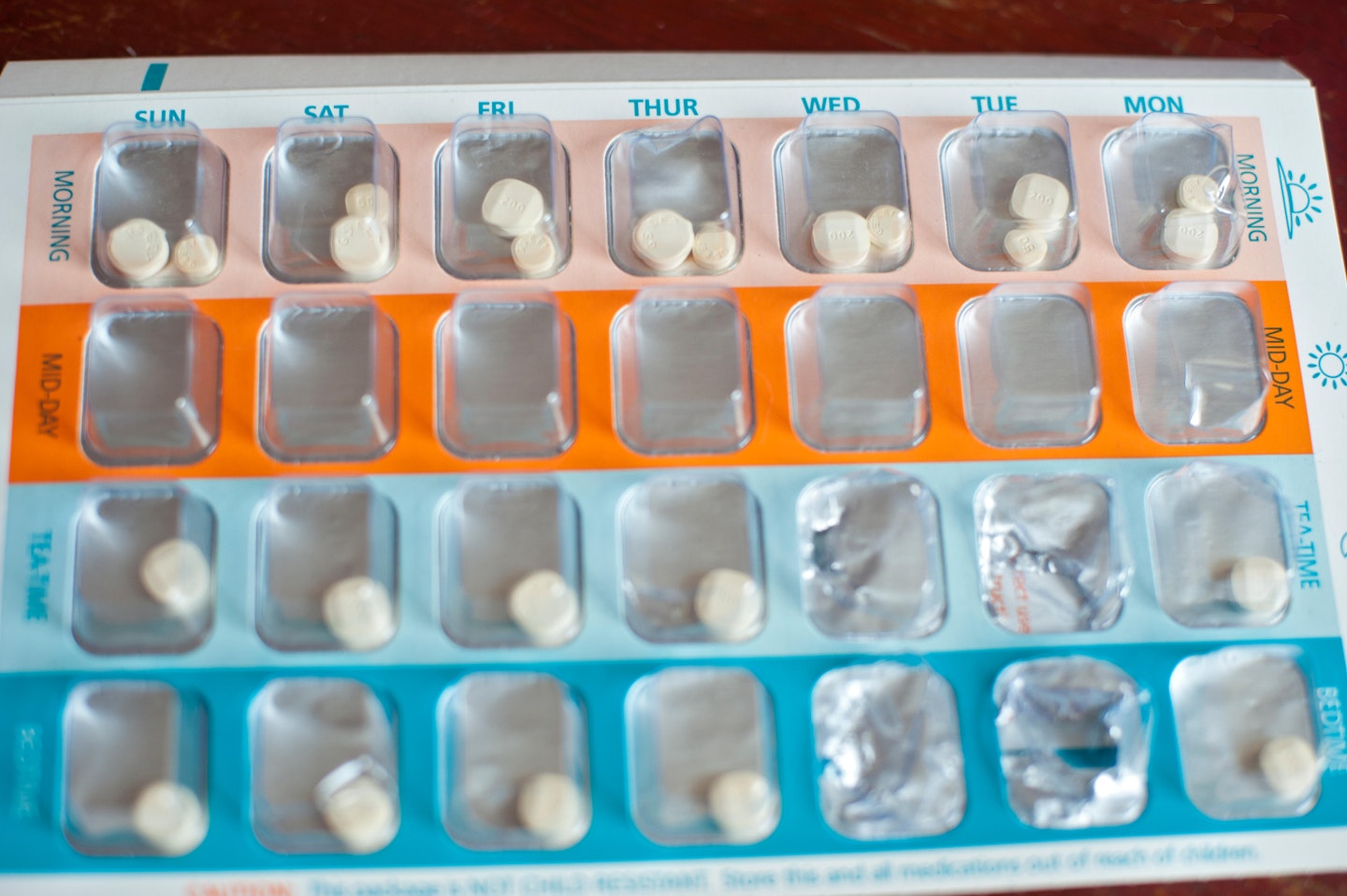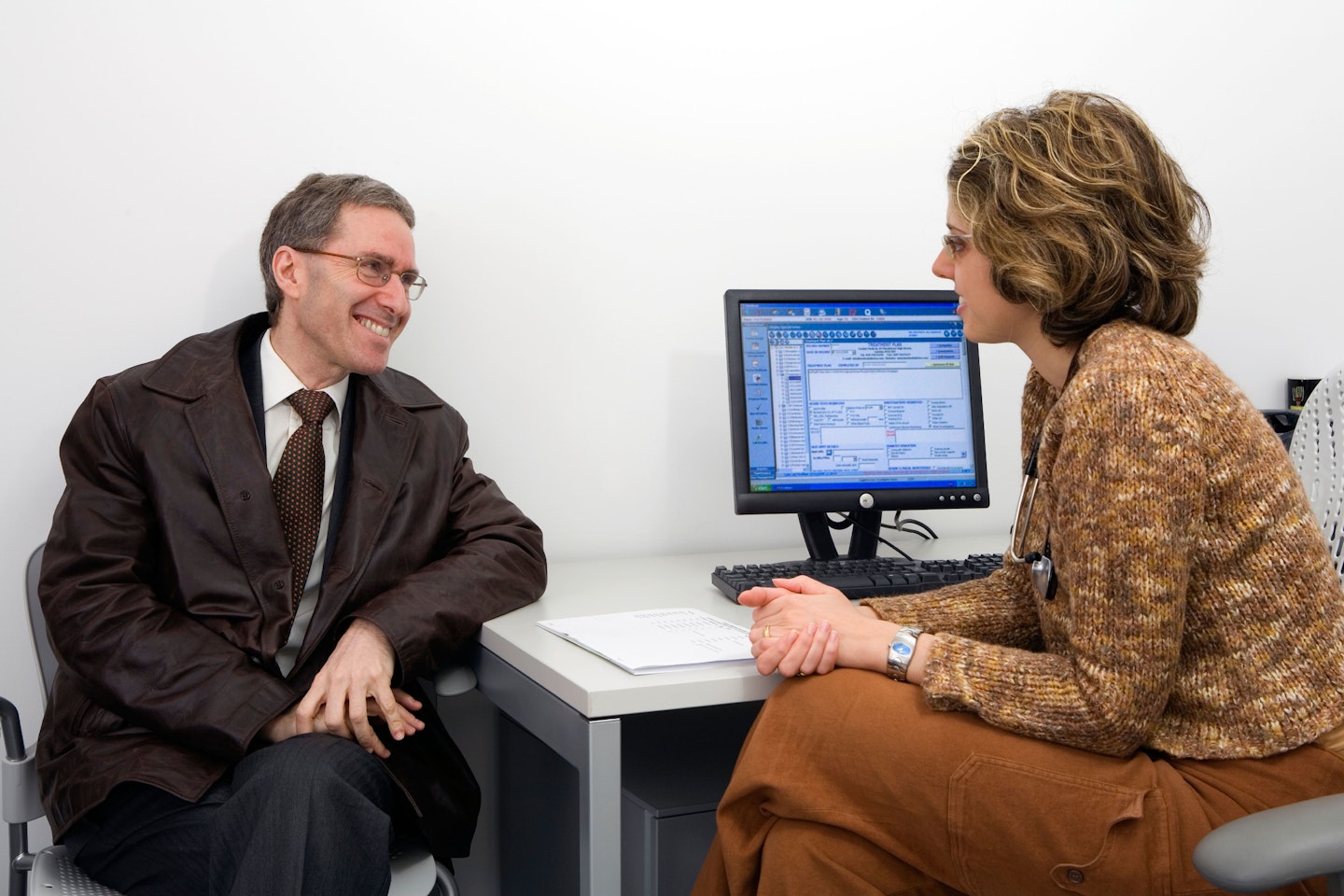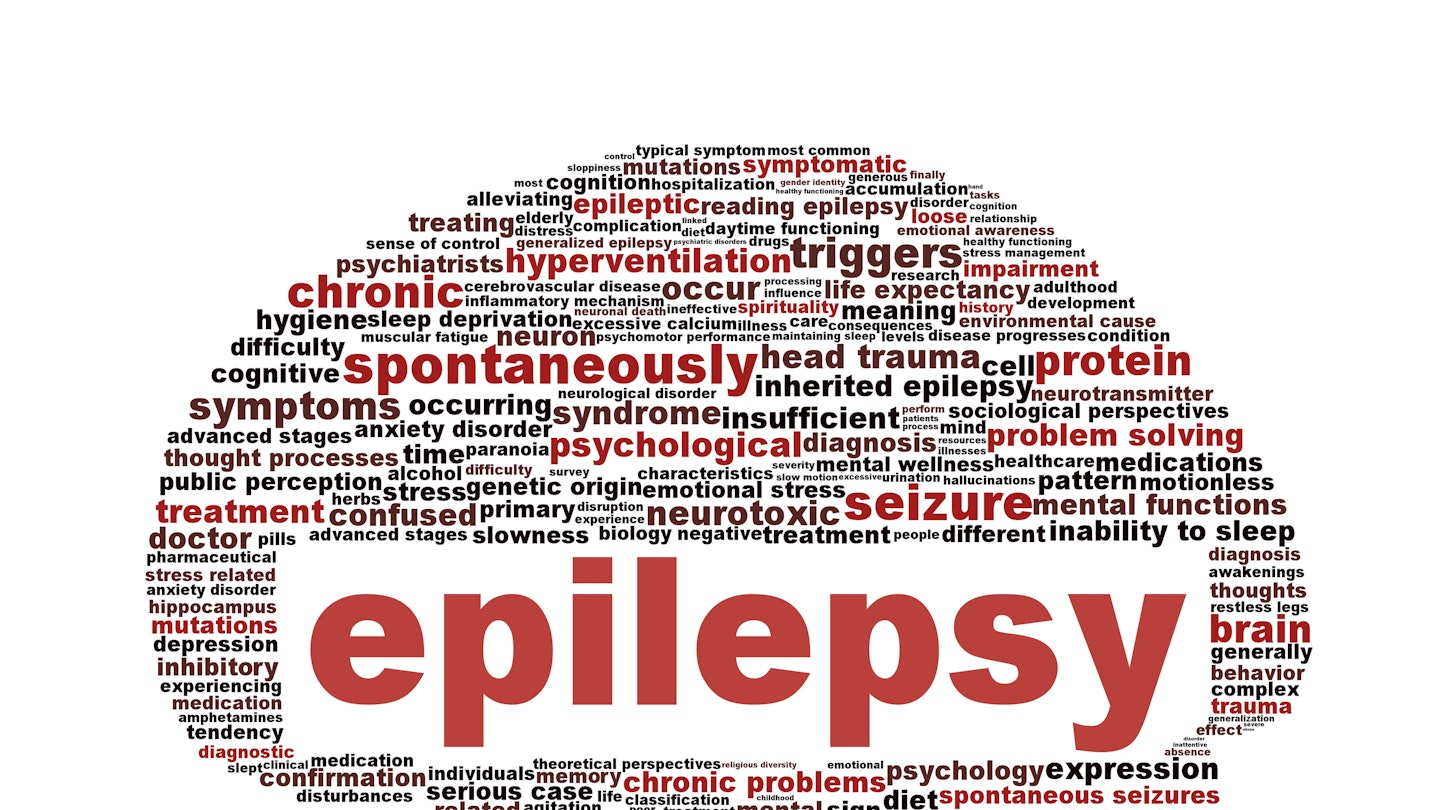A single seizure is not usually classed as epilepsy, which is why doctors often don’t prescribe epilepsy medicine until you have had two or more seizures. Occasionally, doctors might recommend that you start treatment after just one seizure, if they think you are at risk of having more.
Starting treatment
There are many different epilepsy medicines available and your epilepsy specialist will recommend the most appropriate one for you. They will consider things like:
-
The type of seizures you have
-
Your age and sex
-
If you have any other medical conditions
-
If you take any other medicines
-
Your preferences
Doctors usually try to prescribe just one medicine at a time, because the more you take, the higher the risk of side effects. However, there may be times when you need to take two or more.
An example of this is if you change from one epilepsy medicine to another, or if the doctor thinks that taking an extra medicine would give you better seizure control.
If you have epilepsy and take epilepsy medicines, you are entitled to free prescriptions.
Taking epilepsy medicine
Most epilepsy medicine is available as tablets, capsules, liquids and chewable or crushable tablets. If you find tablets difficult, you can ask your GP to prescribe you something that you would find easier to swallow.
Epilepsy medicine is usually taken once or twice a day, and sometimes three times a day. It is important to take it regularly, as prescribed by the doctor. This is to keep a steady level of medicine in your blood, and if you miss a dose, this can increase the risk of having a seizure.
It is a good idea to get advice about what you should do if you ever forget to take your epilepsy medicine. You could speak to your epilepsy specialist, GP or epilepsy nurse about this. Depending on which epilepsy medicine you take, and the dose prescribed will depend on what the doctor advises you to do. They will also consider any other medical conditions you have, or other medicines you are taking, that might affect your epilepsy.
To make treatment with epilepsy medicine easier:
-
Ask the pharmacist for clear instructions on how to take it
-
If you find the patient information leaflet difficult to read, ask for one in large print
-
Ask the pharmacist if they sell Dosette boxes or something similar (these keep your medicine organised and help you to make sure that you take the right ones at the right time)
-
Contact the Disabled Living Foundation for information about other special pill containers or alarms that you can buy. These can be used to remind you to take your medicine

Doses of epilepsy medicine
Your doctor will tell you how much of your epilepsy medicine you should take. Usually, you start taking a low dose and gradually increase it to the maintenance dose (this is the amount of medicine that is thought to work well at controlling seizures).
Each epilepsy medicine has a different maintenance dose. For example, for carbamazepine it is between 800 and 1,200 milligrams (mg). For zonisamide it is between 300 and 500 mg.
Reaching the maintenance dose can take a few weeks or months; so starting at a lower dose and gradually increasing it allows your body to slowly get used to the medicine (and reduces the risk of side effects).
Sometimes, your doctor might advise you to take a higher or lower dose than the recommended maintenance dose. This could be to get better control of your seizures, or to reduce the risk of side effects.
How long does it take for epilepsy medicine to work?
It is not possible to say how long this will take, as it is different for everyone. For many people, it happens quickly, but for others it can take a lot longer.
Many people with newly diagnosed epilepsy respond well to epilepsy medicine and they have fewer seizures, or the seizures stop altogether.
About 30 in every 100 people with epilepsy have seizures that do not respond well to epilepsy medicine. They continue to have a number of seizures, even though they have tried two or more different ones.
Side effects of epilepsy medicine
All medicines can cause side effects. These are usually unwanted and common symptoms like headaches, feeling sick, dizziness, drowsiness and mood changes.
The risk that you will have side effects from your epilepsy medicine depends on several things, including which medicine(s) you take.
When you collect your prescription, by law, you should get a patient information leaflet that lists the possible side effects. You could get any of the effects listed, but most people get few or mild side effects. Some people do not get any side effects at all.
You are more at risk of side effects in the early stages of taking epilepsy medicine, and once your body has had a few days or weeks getting used to taking it, then they should lessen or disappear completely. If they don’t, talk to your GP or epilepsy specialist, as they might make changes to your medicine to lessen the side effects.

Other possible side effects of epilepsy medicine
Bones
Some epilepsy medicines may cause your bones to become thinner and more brittle, which means you are more at risk of breaking them.
For more information on this, click here.
Contraception
If you are a woman with epilepsy, it is advisable to plan any pregnancy if you can. This is to make sure that the pregnancy is as healthy as possible for both you and your baby. So, it is important to use a type of contraception that works well for you.
Some epilepsy medicines make some types of contraception work less well than they should, which could lead to an unplanned pregnancy.
Some types of contraception make some epilepsy medicines work less effectively, which could lead to an increase in your seizures.
For more information on this, click here.
Prescribed medicines
Some medicines used to treat conditions other than epilepsy can increase your risk of having seizures. They might lower your resistance to seizures, or interact with your epilepsy medicine, making it work less well.
Some of these include some antidepressants, some types of antihistamines, some antibiotics and some anti-malaria treatments.
If you are going to take a prescribed medicine, always check with your GP or pharmacist if they could affect your epilepsy or epilepsy medicine.
Grapefruit juice and pomegranate juice
Some medicines work will not work as well if you drink grapefruit or pomegranate juice. It is the juice that affects the epilepsy medicine, not the actual fruit itself.
For more information on this, click here.

The Yellow Card Scheme
If you live in the UK and think that you are getting side effects from your epilepsy medicine, talk to your GP. They can report them to the Medicines and Healthcare products Regulatory Agency (MHRA).
You can also report side effects yourself by completing a Yellow Card. These are available from your GP, pharmacist or the Yellow Card scheme.
Changes in how well epilepsy medicine works
A small number of people find that their epilepsy medicine stops working as well as it once did. If this happens to you, there could be a number of reasons. These include:
-
Not taking your epilepsy medicine regularly
-
Your epilepsy itself may have changed
-
The cause of your epilepsy may have changed
-
Your body may have got used to the epilepsy medicine, so the medicine no longer works
-
Gaining or losing weight
If your epilepsy medicine is not stopping or reducing your seizures, then your GP or epilepsy specialist might suggest changes to your treatment, to try and get better seizure control.
It is very important that you do not make any changes to your epilepsy medicine yourself. This could cause you to have more seizures.
Changing epilepsy medicine
If you have been taking an epilepsy medicine for a while, and are still having seizures or side effects, talk to your GP or epilepsy specialist. - they might suggest that you try taking a different one.
Usually, to change epilepsy medicine you start taking the new one at a low dose alongside your existing one. The dose is gradually increased until you reach the maintenance dose. Then, the old epilepsy medicine is gradually reduced. This can take weeks or months to do.
If you change your epilepsy medicine, you are at risk of having more seizures than usual. You could have withdrawal seizures from stopping the old medicine, or the new medicine might not work well for you.
Because of this, your doctor might advise you to stop driving for a period of time. You may also decide to avoid activities such as sports, until you and your doctor feel sure that you have got good seizure control.

Interactions between epilepsy medicines
If you take more than one epilepsy medicine, one of them may raise or lower the amount of another in your blood. This could cause you to have more seizures.
Therefore, if you take more than one epilepsy medicine, your doctor might change the dosage of the medicines you are taking. This is to make sure that they still work well together.
Drug level monitoring
Drug level monitoring involves having regular blood tests to check how much of a medicine (or drug) is in a person’s blood.
Doctors do not usually monitor drug levels for people taking epilepsy medicine, unless there is a specific reason to do so. These reasons can include:
-
To make sure that a person is taking the right dose of the epilepsy medicine phenytoin
-
To see if a person is taking their epilepsy medicine regularly
-
To find out if the reason a person is getting side effects is because the dose of their epilepsy medicine is too high
-
To find out if levels of certain epilepsy medicines have changed during pregnancy
Stopping treatment
If you have not had a seizure for at least two years, your epilepsy specialist might discuss with you the risks and benefits of continuing or stopping your epilepsy medicine.
They will only suggest this if they think that the risk of your seizures coming back is low. Here are some of the things they will consider when making the decision:
-
How long you have been seizure free (the longer you have been seizure-free, the lower is the risk that you will have another seizure)
-
How many epilepsy medicines you take (if you needed more than one epilepsy medicine to control your seizures, there is a higher risk that your seizures will return if you stop taking medicine)
-
How many seizures you had before they were stopped with epilepsy medicine (the more you had, the higher is the risk that your seizures will return)
-
The type and cause of your epilepsy (some types of epilepsy, such as juvenile myoclonic epilepsy, will usually return if you stop taking medicine)
-
How old you were when your seizures started (some types of epilepsy that begin in childhood go away when you are an adult)
If you do stop taking epilepsy medicine, you will do so gradually. Your epilepsy specialist will advise you how to do this, and it could take a few months to stop taking your medicine altogether.
If you stop taking epilepsy medicine too quickly, it could cause you to have more frequent and severe seizures.
When stopping your medicine you must stop driving, for safety reasons. You will have to stop driving whilst coming off your medicines and for six months afterwards. If you live in England, Scotland or Wales you don't need to inform DVLA. If you live in Northern Ireland you must inform DVA.
For more information on epilepsy treatment, please visit Epilepsy Action or call their freephone helpline on 0808 800 5050.
To read more about Epilepsy, try these:
